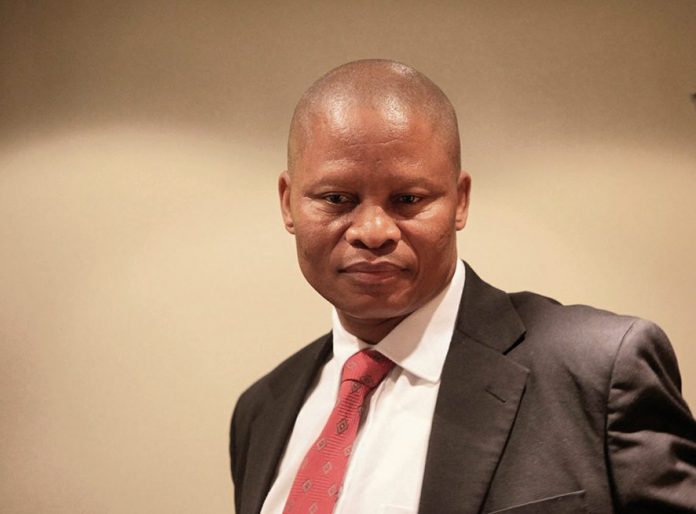Johannesburg – On a spring afternoon in 2011, then chief justice nominee Mogoeng Mogoeng told the Judicial Services Commission that God wants him to be appointed to the position.
Inkatha Freedom Party commissioner Koos van der Merwe had asked: “Do you think God wants you to be appointed chief justice?” Mogoeng answered: “I think so.”
Nearly a decade later, and after by what all accounts points to a stellar leadership of the country’s apex court, Mogoeng is no doubt seeking divine guidance after a finding by the judicial conduct committee that he contravened parts of the code of judicial conduct when he made pro-Israel comments in a webinar last June and at a prayer meeting.
Last year, a video of Mogoeng commenting on Israel emerged. In the footage, he said as a Christian he was obliged to love and pray for Israel and that his nation would be cursed if he did not do so. Mogoeng’s stance is against established government policy, a function belonging to a different arm of state.
The separation of powers is sacrosanct to the constitutional democracy we are nurturing to health.
And one can only pray that Mogoeng affirms the constitution he swore an oath to protect. So far, Mogoeng has kept his cards close to his chest and has just days to apologise or opt to set the scene for what promises to be the biggest test to the judiciary since judge John Hlophe and Motatagate.
Mogoeng’s conduct represents the kind of state sponsorship of religion prohibited by the constitution and that must be deterred if the country’s devotion to religiously neutral government is to be preserved.
Such conduct gives a strong inference that the judge’s decisions are predicated on a basis other than the law of the land.
There are no free agents in the judiciary, the constitution and its expectations reign supreme. A popular argument advanced by supporters of Mogoeng is that their opponents are trying to remove religion and its influence from public life.
From a historical perspective, the authors of our constitution considered it in the best interests both of democracy and sincere religious belief to establish a government that is neutral toward religion.
This commitment forms the basis of a liberal democratic state and aptly rejects the notion of a religious state.
The country is waiting chief justice.
Place your faith in the law of the land.

Follow @SundayWorldZA on Twitter and @sundayworldza on Instagram, or like our Facebook Page, Sunday World, by clicking here for the latest breaking news in South Africa. To Subscribe to Sunday World, click here.
Sunday World



